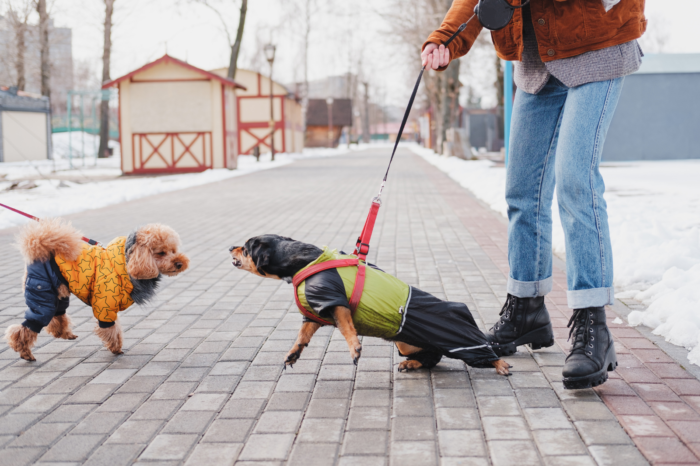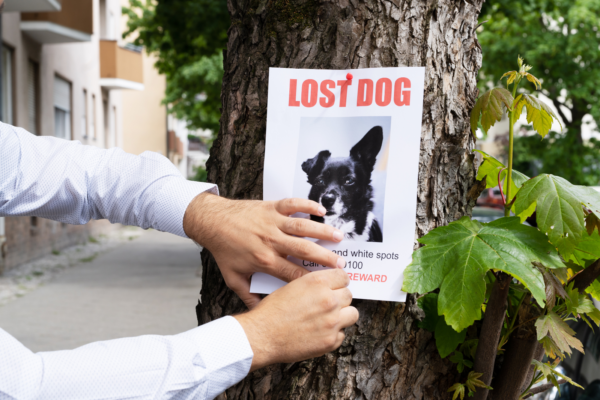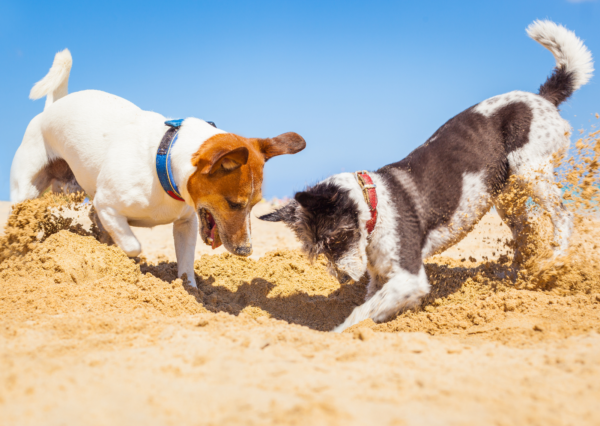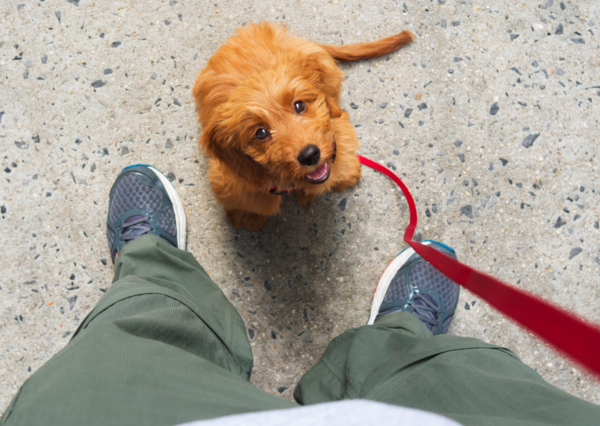Managing Aggressive Dog Behavior: Tips for Peaceful Living
Living with an aggressive dog may seem challenging, but it can be peaceful and manageable with the right approach. One key aspect is to remain calm in all situations. Reacting nervously to potential triggers can escalate the dog’s anxiety and aggression. Being calm allows for rational assessment of the situation and making the best decisions, which is crucial when dealing with aggressive dogs.
Accept it
Acceptance is also vital in managing life with an aggressive dog. Understanding and accepting that the dog has aggression issues and may never be a social, outgoing dog is important. The owner acknowledges that their dog may not enjoy crowded places, meeting new people or dogs, and that’s okay. The dog has the right to have her own preferences and boundaries. The owner respects and accepts their dog as a unique individual, and this has made their life together easier and more comfortable.

Establish routine
Establishing a routine for the dog can also be helpful in managing aggression. Providing a predictable daily routine for meals, walks, and training can reduce stress levels for the dog. However, the owner also introduces small, surprising elements to the routine to help the dog get used to unusual changes and learn to cope with them.
Focus on trust
Building trust between the owner and the dog is crucial. The owner understands, respects, and accepts the dog’s threshold, boundaries, preferences, and strategies for dealing with problems. Mutual trust is essential in managing aggression effectively.
Understanding that aggressive behaviors are natural for dogs is important. Dogs have evolved aggressive behaviors for survival, and it is normal for them to exhibit such behaviors. It is unrealistic to expect dogs to stop being dogs and not exhibit any aggressive behaviors. Accepting this fact and understanding the natural instincts of dogs can help in managing aggression effectively.
Understand the behavior
Lastly, reframe aggression. Define it by specific behaviors. Aggression is simply a label we assign to various behaviors. Learn how to address these behaviors, understand the science behind them, and change them ethically. If you try to find the cause of aggression solely within the dog, you may end up stuck in a cycle of unfounded explanations and an inability to effectively help your dog progress.

Behavior should be our primary focus. This doesn’t mean that emotions are not relevant, but they are difficult to measure. Emotions are a crucial and important part of a dog’s life, but we can only influence them by working on their behavior. This emphasizes the need for an ethical approach, as dogs are unable to communicate their emotions verbally. Therefore, we should be particularly cautious about the methods we use, and prioritize positive reinforcement as our first choice.
Behavior doesn’t exist in isolation. To fully understand the triggers and consequences of behavior, we must carefully observe the context and the history of the learner. Looking at behavior without considering its context is a mistake. Taking a scientific approach equips us with tools to be effective teachers and effectively address aggressive behaviors.
In conclusion, living with an aggressive dog requires a calm, accepting, and routine-based approach, built on trust and understanding of the dog’s natural behaviors. It may not be the same as living with a non-aggressive dog, but with proper management and acceptance of the dog’s unique personality, it can be a peaceful and fulfilling experience.
See also other posts:
June 30, 2023

Get Your Lost Dog Back Home Quickly: Follow These 12 Tips for Success
Vacations favor more frequent and longer walks with our furry friends. We travel, visit new places. Summer makes us loosen our brakes and allow our…
June 30, 2023

Unlocking the Secret to Successful Puppy Socialization: Quality over Quantity
Today, although the topic is very important, I will keep it brief. Socialization is a topic that could fill books or scientific papers. However, today…
June 30, 2023

4 reasons why online puppy training is better than in-person
Most of the puppy guardians know that they need to train their puppy. But not every puppy will thrive in a puppy training class and…

